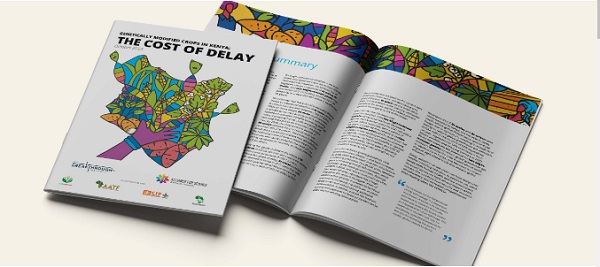
Kenya loses $157 million due to delays in adopting Genetically Modified (GMO) crops, report finds
A new report by the Alliance for Science has revealed that Kenya has incurred an estimated $157 million in potential agricultural benefits due to prolonged resistance to genetically modified (GMO) crops.
The study attributes these losses to anti-GMO activism, which has been fueled by misinformation, fear-mongering and political interference, leading to significant delays in the approval of key genetically modified crops such as maize, cotton and potatoes critical for the country’s food security and economic growth.
The findings highlight the steep economic, environmental and social costs of Kenya’s delayed adoption of GMO technology, particularly in a country where agriculture plays a pivotal role in the national economy.
The report, launched at the 2024 OFAB Media Award in Malawi on December 17, 2024, by the lead researcher, Dr Emma Kovak, outlines the financial toll Kenya has faced due to its failure to embrace GMO crops.
She emphasised that the delays in introducing GM maize, cotton and potatoes have resulted in missed economic opportunities totalling $157 million.
“These crops are vital to Kenya’s agricultural sector,” Dr Kovak explained. “They not only contribute to food security but also to the national economy.”
Maize: A staple crop at risk
Dr Kovak explained how maize, a staple crop in Kenya, has been severely affected by the destructive fall armyworm pest.
“The introduction of Bt maize, a genetically modified variety resistant to this pest, could have alleviated the problem. However, political opposition and legal hurdles have kept the crop from reaching the market, leading to an estimated loss of $67 million,” she said.
She added that “Had Bt maize been approved in 2019 as planned, it could have boosted production by an additional 194,000 tons in 2024—representing 25% of Kenya’s maize imports in 2022.
“This is more than 14 times the amount of maize food aid Kenya received from the World Food Programme in 2023.”
Cotton: A potentially revitalised industry
The report also highlighted the delayed release of Bt cotton, engineered to resist bollworms, which has resulted in a loss of $1.2 million in potential cotton production.
“Bt cotton was ready for release in 2015 but only faced approval in 2020. Had it been introduced earlier, it could have added 650 tons to the domestic supply, reducing Kenya’s reliance on imported cotton by 12% and rejuvenating the entire cotton sector,” Dr Kovak explained.
Potatoes: Crucial for smallholder farmers
Potatoes, another critical crop for Kenya, especially for smallholder farmers, have also suffered due to delayed approval of genetically modified, blight-resistant varieties.
The report said these potatoes could have alleviated significant crop losses caused by late blight disease. However, approval was delayed for five years, costing farmers and consumers an estimated $89 million.
“Over the next 30 years, the release of GM potatoes could generate $247 million in economic benefits, improving food and nutrition security for millions of farmers who rely on potatoes for their livelihoods,” she stated.
Beyond the financial losses, the report also underscores the environmental consequences of delaying the adoption of GM crops. It notes that higher yields from genetically modified crops could have helped reduce the need for expanding agricultural land, mitigating deforestation, and lowering Kenya’s greenhouse gas emissions.
“Had GM crops been adopted sooner, it could have led to a reduction of 1.15 to 3.6 million tons of carbon dioxide emissions—equivalent to removing 780,000 cars from the road,” the report states.
According to Dr Kovak, the delay in adopting GM crops has been largely driven by misinformation and political interference, with anti-GMO activists and some politicians spreading unfounded fears about the safety of genetically modified crops.
She noted that despite widespread scientific consensus that GMOs are safe and beneficial for agriculture, these campaigns have contributed to public resistance, undermining confidence in science-based policies.
“Some politicians have even propagated alarmist claims, such as suggesting that consuming GM crops could cause women to grow beards. These sensational and baseless fears, along with ongoing legal challenges, have played a significant role in hindering the adoption of GM crops”, she pointed out.
Dr Kovak urged the Kenyan government to confront the misinformation surrounding GMOs and act swiftly to support their use.
The report further called on the government to support the innovations of local scientists who have developed genetically modified crops tailored to Kenya’s unique agricultural challenges.
